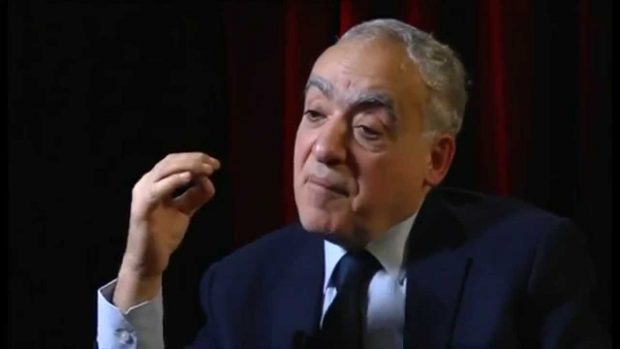New UN envoy to Libya Ghssam Salame to arrive in Tripoli Wednesday aiming to resolve Libya’s dilemma

Set to arrive in Libya next week, the new United Nations Special Representative said that he was coming to Tripoli to work with the Libyans, in an attempt to help find a solution out of the political crisis that led to the fall of Muammar Gaddafi in 2011 and pushed the country into a crisis that sees thousands of migrants and refugees fleeing to Europe and other countries in Africa.
“I am coming to work with them and for them,” Ghassan Salamé told UN News about his message to the people of Libya.
“I am not going to work in their place because there are things that they need to decide. [If] they’re happy to remain in that political vicious circle, I can do nothing for them. But if their decision is to get out of it, they will find in me an energetic and creative mind at their service.” He added.
UN Secretary-General António Guterres in June appointed Mr. Salamé lame as his Special Representative and head of the UN Support Mission in Libya (UNSMIL).
During their first official meeting today, described as “long” and “fruitful” by Mr. Salamé, the Secretary-General gave his new envoy two key cards to use in Libya.
“The Secretary-General had the opportunity to express the great attention he is devoting to Libya as a high level issue,” Mr. Salamé said, and “his confidence in the leadership [that] I will need to demonstrate with dealing with this sensitive issue.”
In the month since being appointed, Mr. Salamé said he received hundreds of emails and tens of thousands of tweets offering advice on how to assist Libya – sometimes contradictory.
“Some people wanted me to be extremely interventionist in their own affairs, some people wanted me to be very, very prudent in their own affairs,” he said. “Some people wanted me to deal; some people wanted me to never talk to other people.”
“I learned a lot from all this,” Mr. Salamé said, adding that he was particularly moved by the “incredible warmth” the Libyans have shown him so far.
During the next few days, the new UN envoy plans to meet with permanent representatives to the UN of various stakeholders to refine his own view of how Libya is seen. These will include meetings with the so-called ‘P 5,’ or five permanent members of the Security Council – China, France, Russia, United Kingdom and United States – as well as countries with a direct interest in the evolution of Libyan affairs, such as Algeria, Egypt, Italy and Tunisia, as well as the African Union (AU) and the European Union (EU).
Mr. Salamé is due to arrive in the Libyan capital, Tripoli, by Wednesday.
He said his first few days will be devoted to listening to Libyans: “I have reached an age where I am looking for neither a big career, money nor glory. I have reached a point in my life where my first priority is legacy. And therefore, I want this mission to be a successful one so that I can speak of my diplomatic career as much as of my academic career.
“And what is success at this case? It is to work with the Libyans for the Libyans in order for them to find a common ground that takes them out of the political quagmire they have painted themselves into,” he continued.
The comments come just days after Libya’s UN-backed Prime Minister Fayez al-Sarraj and the country’s eastern commander General Khalifa Haftar met and agreed on a joint declaration that calls for a negotiated political solution, national reconciliation and an immediate ceasefire.
The most positive result of the meeting, the UN envoy said, is that both sides agreed the solution in Libya can only be political and not military.
“They also agreed on having the elections sometime next year. Something that needs to be prepared very well,” he said, noting that the UN will support Libyan efforts to plan for free and fair elections.
UN efforts in Libya are guided by the Security Council, which established a political mission in the country in 2011. As the head of UNSMIL, Mr. Salamé will be responsible for supporting mediation and good offices to assist implementation of Libyan political agreements; consolidate governance, security and economic arrangements of the Government of National Accord; and support human rights and transitional justice efforts in the country, among others.
How to submit an Op-Ed: Libyan Express accepts opinion articles on a wide range of topics. Submissions may be sent to oped@libyanexpress.com. Please include ‘Op-Ed’ in the subject line.
- Iran seeks diplomatic thaw with Morocco following years of tension - November 18, 2024
- National reconciliation forum begins in Benghazi - November 18, 2024
- Libya faces crucial Nations Cup qualifier against Benin - November 18, 2024


